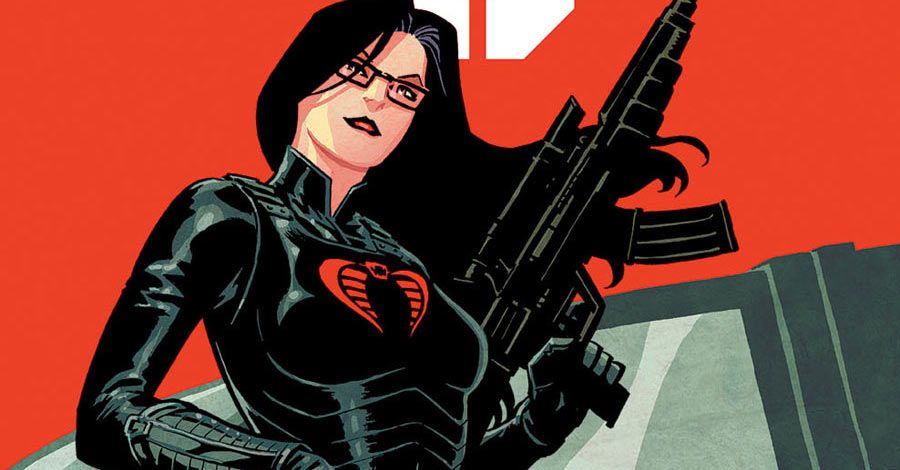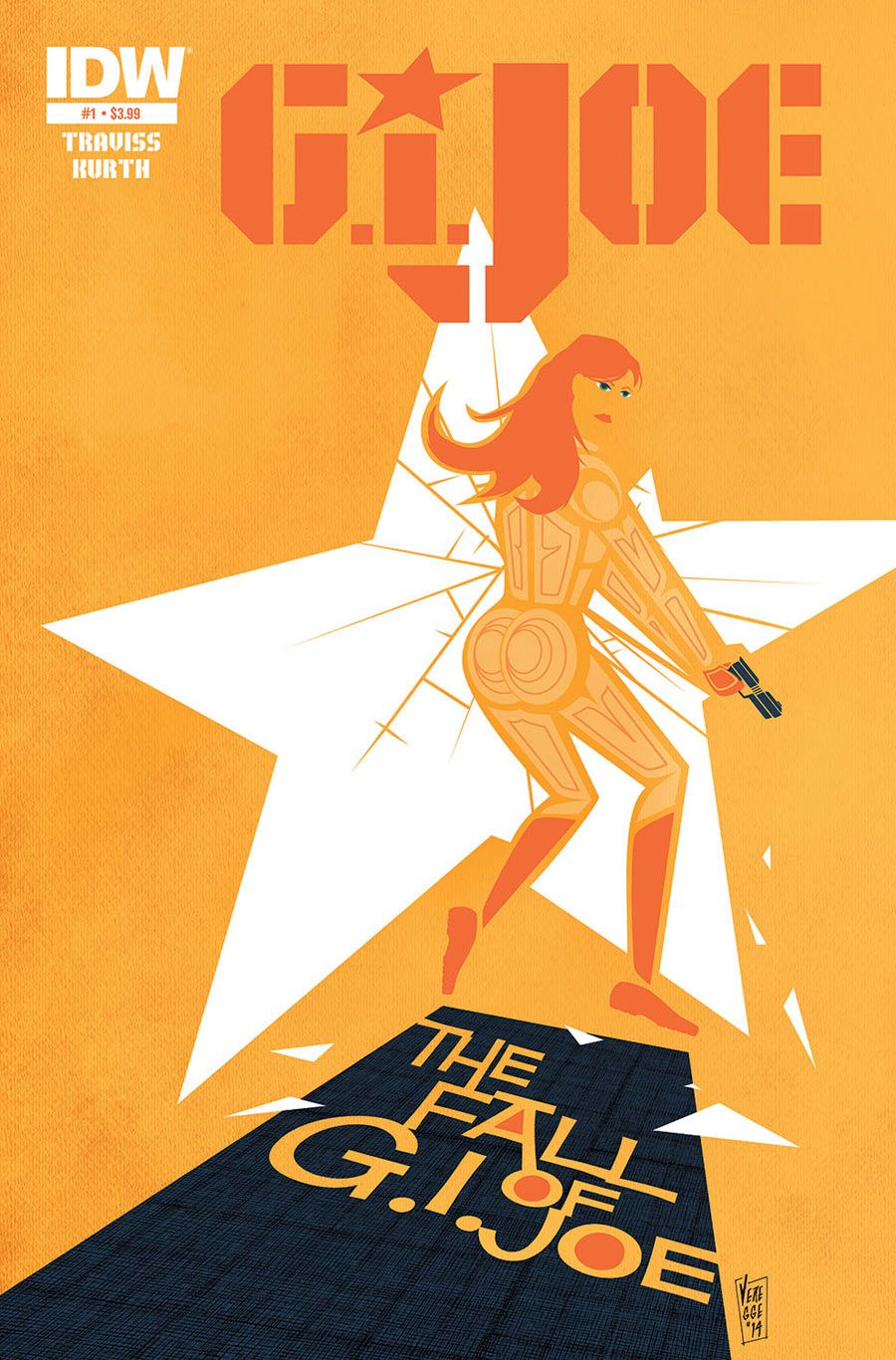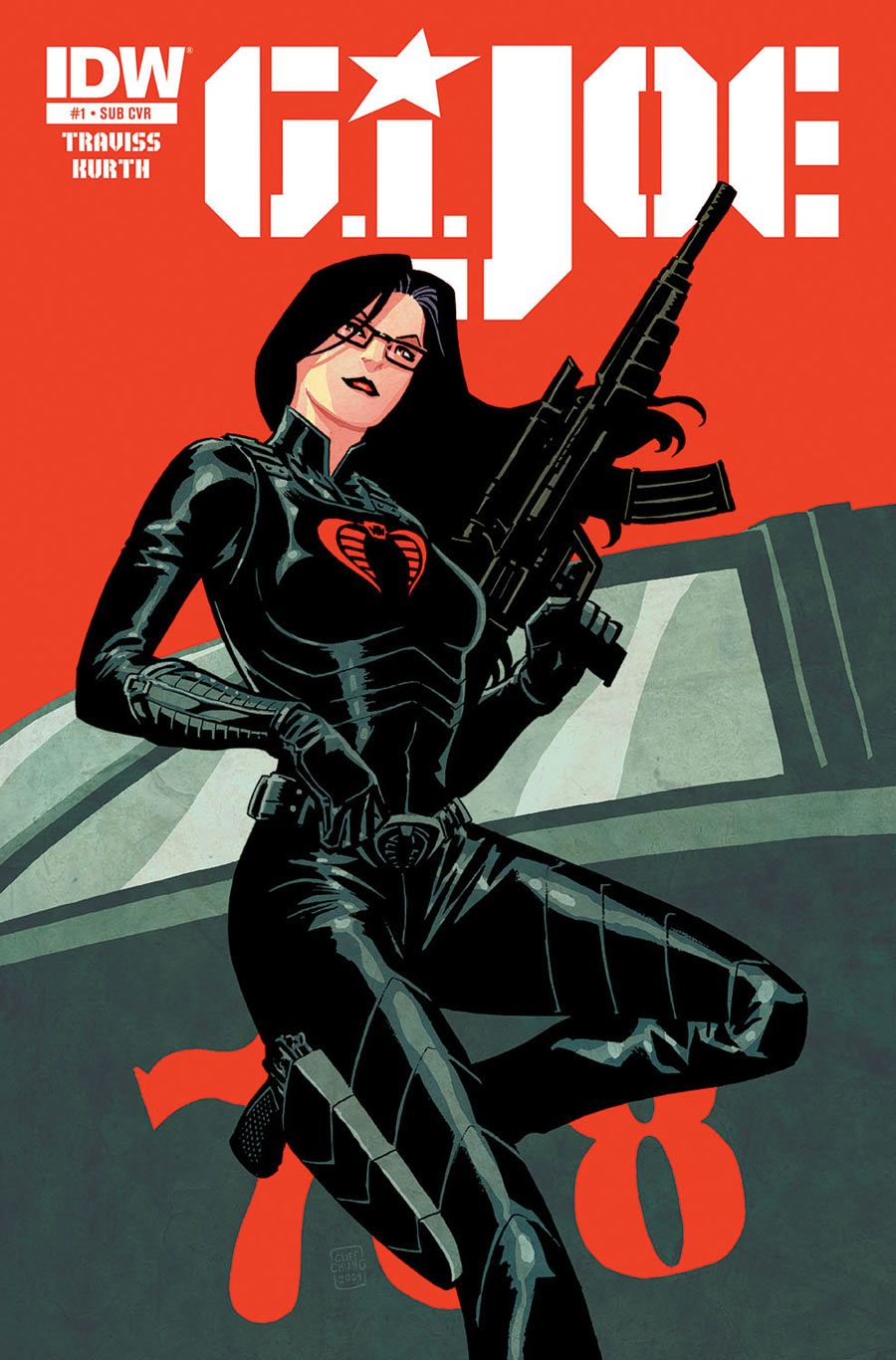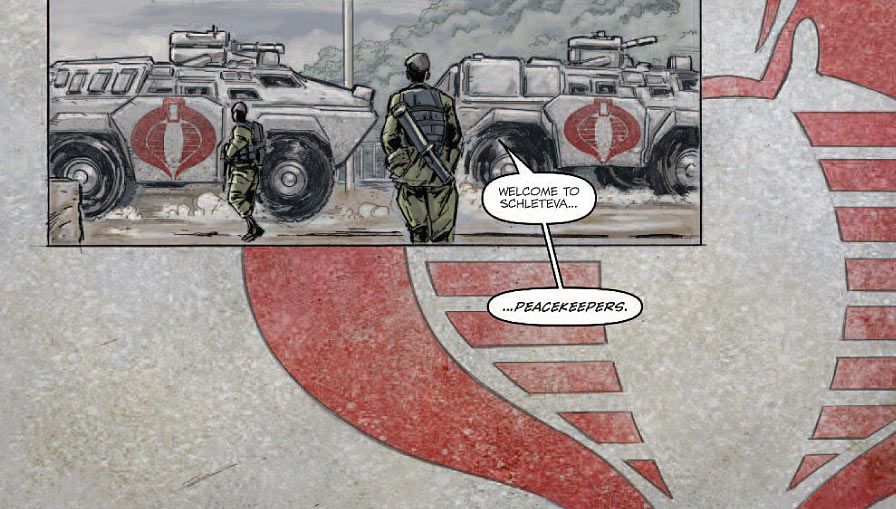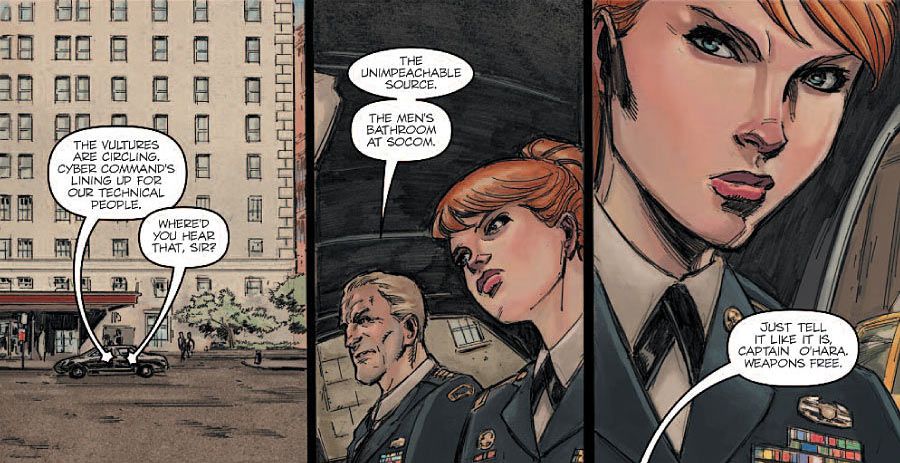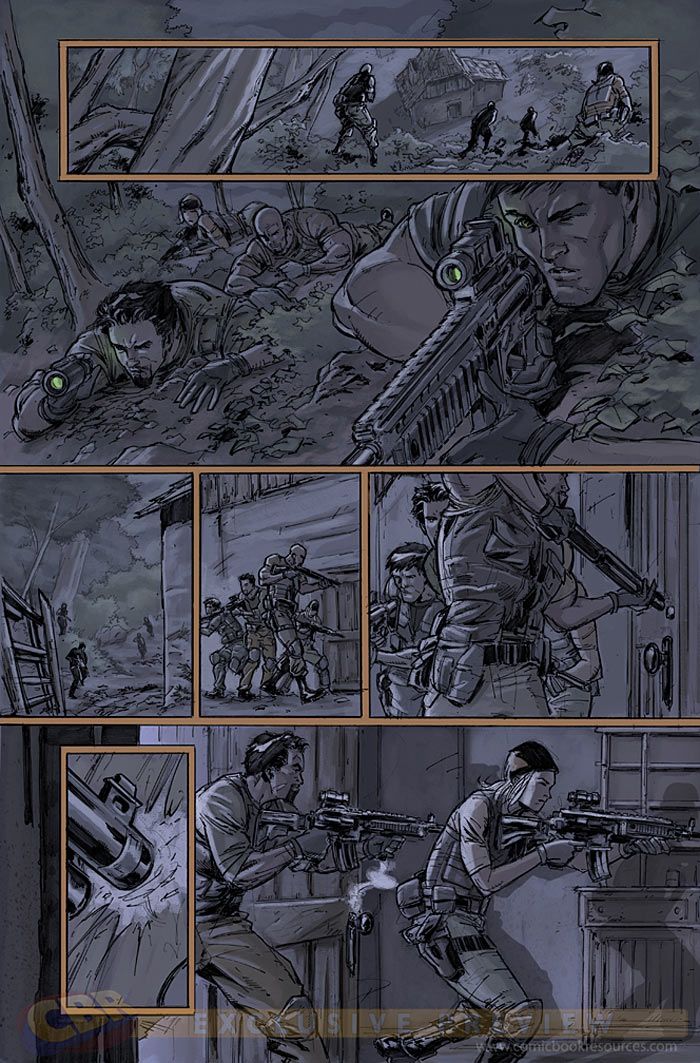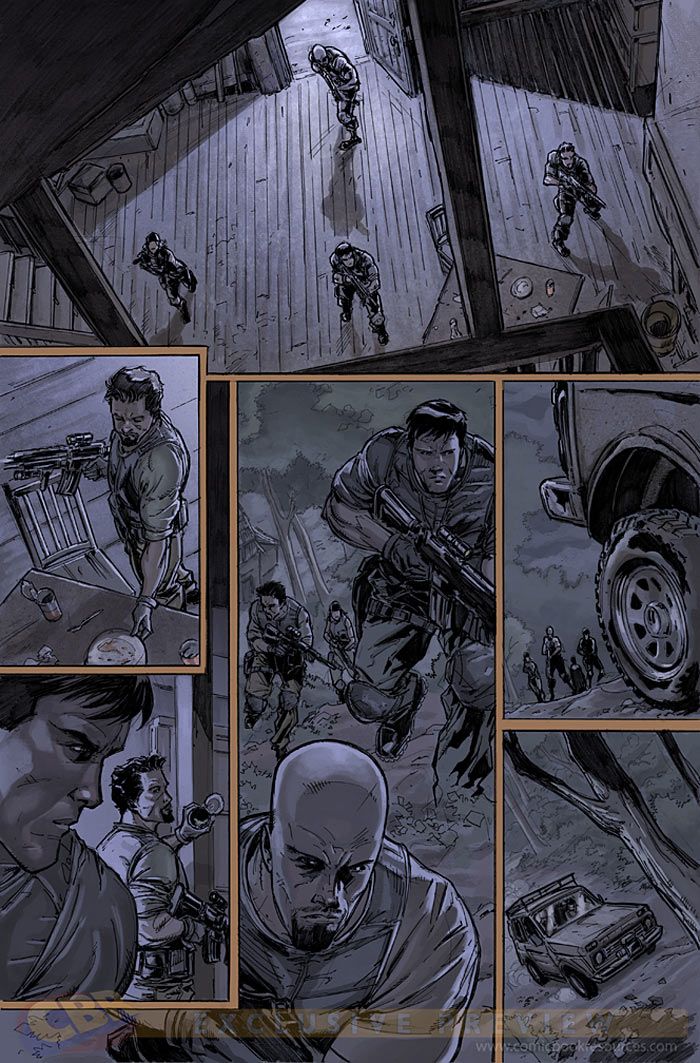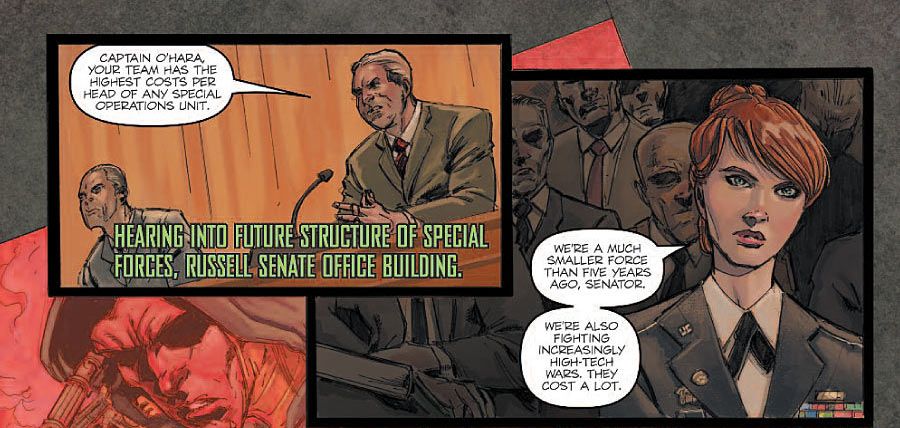This September, IDW Publishing enlists military writer and former defense journalist Karen Traviss to relaunch their flagship "G.I. Joe" title, featuring art by Steve Kurth. Traviss' first story, "The Fall of G.I. Joe," follows a new team led by Scarlett in a world where Cobra has become the good guys.
RELATED: Karen Traviss to Write Relaunched "G.I. Joe" at IDW
Traviss, who has also written "Star Wars" and "Gears of War" novels, spoke with CBR News about taking on the legendary military comic, revealing her unique take on Cobra, why she picked Scarlett as the new team leader, and gives her thoughts on being the first female "G.I. Joe" writer.
CBR News: Karen, what's your first "G.I. Joe" arc about?
Karen Traviss: It's about five or six years from the end of the last series, and the world's moved on in that time. Tomax Paoli is now heading up Cobra and trying a different approach to get Cobra's ideologies across -- the new Cobra has renounced violence, positioned itself as a legitimate international organization, and is playing peacekeeper in some of the world's trouble spots instead of the UN. Tomax genuinely believes it's more effective to do a hearts-and-minds job on world opinion than to sink billions into a shooting war with the US and its allies, because it hasn't worked so far. So he's doing his shuttle diplomacy while the Baroness, who doesn't believe in negotiating all the time there's a perfectly good .50 cal available, feels sidelined in this brave new world and is spitting nails about it. She's not going to take it lying down. She's not the only one left high and dry by the changing political climate, though. U.S. politicians think that because Cobra's dropped down the threat list, the G.I. Joe teams have done their job, so they want to disband them to save money. Scarlett's trying to fight this on the political front while trying to keep morale up, knowing that they're all facing a bleak future.
But nothing's ever that simple in geopolitics. There's a disgruntled spook who thinks the politicos have totally underestimated Cobra, and Siren's son Isaac, now sixteen and a complete ideologue who doesn't agree with this new touchy-feely diplomacy. (Well, as touchy-feely as Cobra can get, which still isn't exactly cuddly.) Take a disputed border region where Cobra's doing the peacekeeping, throw those two malcontents into the mix, shake, leave to ferment... and the G.I. Joe team has a tough job on their hands.
Are you incorporating anything from IDW's last major reboot in early 2013 or is your story a clean slate?
I'm trying to preserve as much as I can of the characters I'm using. A couple of them have interesting, troubled backgrounds that would be a shame to waste, although there's one character from the distant past who I'm bringing back with a different take.
How did you get involved with this latest series?
I got involved late last year when IDW contacted me to ask if I was interested in doing the series. Which, as people have heard by now, was a tinfoil hat moment; I was literally just finishing writing a scene in "Going Grey" (the first book in my new techno thriller series) where two of the characters -- one former Royal Marine, one National Guardsman turned private contractor -- are debating whether having "G.I. Joe" and "Action Man" as kids shaped their decisions to enlist as adults. Cue jokes about gripping hands. "Action Man" is the UK version of "G.I. Joe," by the way, and equally iconic for at least two generations of Brits.
What's your opinion on whether playing with "G.I. Joe" as a kid shapes peoples' decisions to enlist later in life?
The two characters in "Going Grey," Mike and Rob, actually do debate about it. Mike, who doesn't have kids yet, is an anxious would-be dad. Rob, who's got a teenage son and has seen it all, assures him that children take their own path in the end, no matter what you try to steer them with. (As any parent will confirm, I suspect.) Mike recognizes that playing soldiers is an ancient instinct, and it's one that has a key role when the two of them finally track down Ian Dunlop.
If kids were so easily programmable, we could change our entire species in a generation with just a few toys or games. I don't see any sign of that in history. You can't create something from nothing; things that kids embrace are already rooted deep in the human psyche.
Why did you go with Scarlett as your team leader?
It sort of happened. It had already been mooted, I think, because it came up when I was kicking ideas around with John Barber, the editor, and I thought, why not? Okay, good idea. Let's do it. She's smart, she's experienced, and five years on she's gone the officer route and having to deal more with politics and horse-trading that's alien to her. Now she's got to oversee what might be the final, run-down period for "G.I. Joe." She's got a lot of conflicting issues to handle.
What G.I. Joe team members are making up the rest of your core team?
I've got a formula for this, as you'd expect after all the franchise work I've done. I didn't want to create any new characters this time -- although I had to add some in the end -- so I went through the character list like a menu and just cherry-picked the ones who made most sense to have around in five years' time. They're not all still in the service; some are private contractors. So the main G.I. Joe team we follow in the field is Flint, Roadblock, Mainframe and Helix. There are two former G.I. Joe team members who cross their path as well.
Then we've got the Cobra line-up -- Tomax, Isaac, Siren and the Baroness -- plus some local militia leaders. The new character is an intelligence agent, Josh Spinetti, and he works for an agency that doesn't tell the CIA what it's doing, or anyone else for that matter.
What was your inspiration for your new take on Cobra?
History. If you take a look at a lot of governments, and people we unquestioningly regard as statesmen, they started their political lives as the bad guys. Bad guys turn respectable quite often and sit down at the negotiating table when violence doesn't work. By the same token, governments that like to think of themselves as having sprung from apparently noble causes often end up behaving like the bad guys. It's a two-way street. Politics and statesmanship is the greyest of grey areas, shall we say.
Does your American outsider status affect what types of stories you're telling about this American military machine?
Yes, that and having been a journalist. There are things I don't take as a given. I never put my views in my fiction -- if I wanted to get on a soapbox, I've got plenty of real-life ways to do that -- but I do ask questions. It's up to the reader to supply their own answers. I look at the world from a different angle and ask awkward journalist questions. If there's an elephant in the room, I'm the first to walk up and interview it.
"G.I. Joe" doesn't seem to have ever shied away from difficult issues, though, so I think readers are used to working things out for themselves.
Are your stories being inspired by any specific experiences you had from your time in the military or as a journalist?
No, it's inspired by just being old and having seen history (humans, basically) repeat itself on a daily basis for many, many years. Nothing specific. If there's any detail I can recall from my experiences that'll bring a panel to life, then I'll lob that in, but this story arc is people being people rather than any specific incidents I've been involved in.
What separates "G.I. Joe" from traditional military comics?
It's a cultural icon. It's not really surprising that I was using a "G.I. Joe" reference in a totally unrelated novel. In fact, "Going Grey" has quite a few "Action Man" and "G.I. Joe" references, because that's part of the language even for people who've never seen the action figure. It's an archetype; it's the essence of the man or woman in uniform. And because it's been special to so many people, you treat it with due respect. Lots of my mates, who didn't realize I was writing "G.I. Joe" until they saw the media coverage, got in touch to say how much it had meant to them when they were growing up. And they've stayed with it. Even my plumber has!
You're the first female writer on "G.I. Joe." Is that something you think about, either in terms of the extra spotlight or in how you write the comic, or are "G.I Joe" comics just business as usual?
I've been writing military fiction for ten years now. I was a defense correspondent in the days when few, if any, women did the job. It's perfectly natural for me, and readers have never shown the slightest surprise -- the response to the "G.I. Joe" announcement was, "Oh yeah, that's Karen Traviss, we know her stuff." It's just not relevant.
And I've never thought of myself as a "woman writer." I have no idea what that even means in real terms; I'm a military writer, I'm maybe defined by the jobs I did previously, or even my social class, but gender doesn't play a part at all. There was a daft theory in academia that men and women write differently, but as anyone who's read my stuff over the years will tell you, it's nonsense. I write about people, and I can get into any character's head -- any age, any gender, any background. But I come from a naval town, all my family had either served in the armed forces or worked in the defense industry, and I spent time in the reserves myself. It would be odd if I didn't do an authentic job of writing about that world. People expect it of me now.
What other projects do you have coming up?
I'm working on "Black Run," the sequel to "Going Grey," and another original series in a different genre -- okay, an apocalypse, but totally zombie-free -- and I'm writing more comics that haven't been announced yet. I decided to drop franchise novels for the foreseeable future and stick to comics instead so that I can concentrate on original novels. That's the right balance for me -- comics and my creator-owned books. I've got a creator-owned comic in progress, but the novels have to come first at the moment.
"G.I. Joe" #1 by Karen Traviss and Steve Kurth goes on sale September 24 from IDW Publishing.

